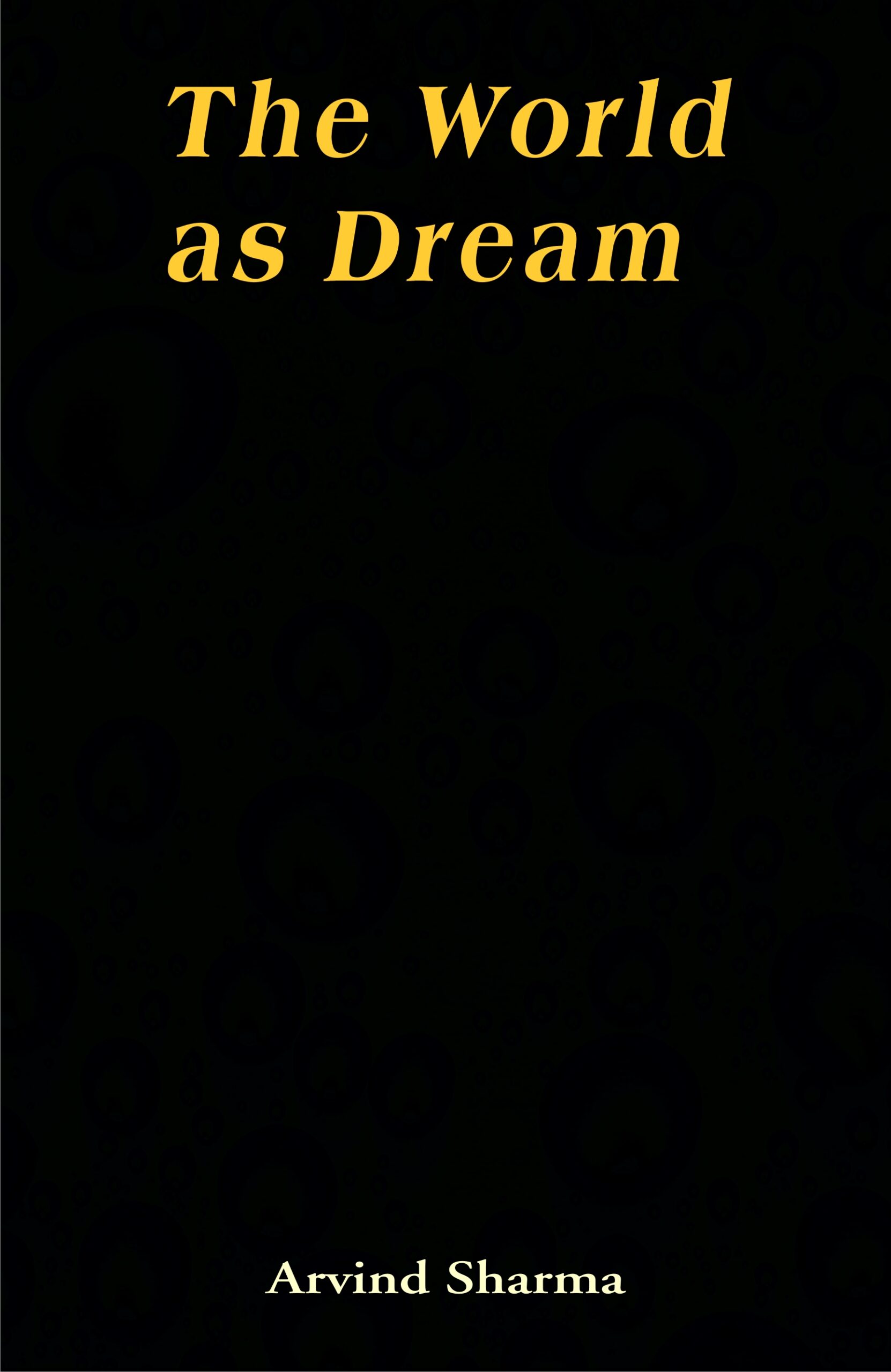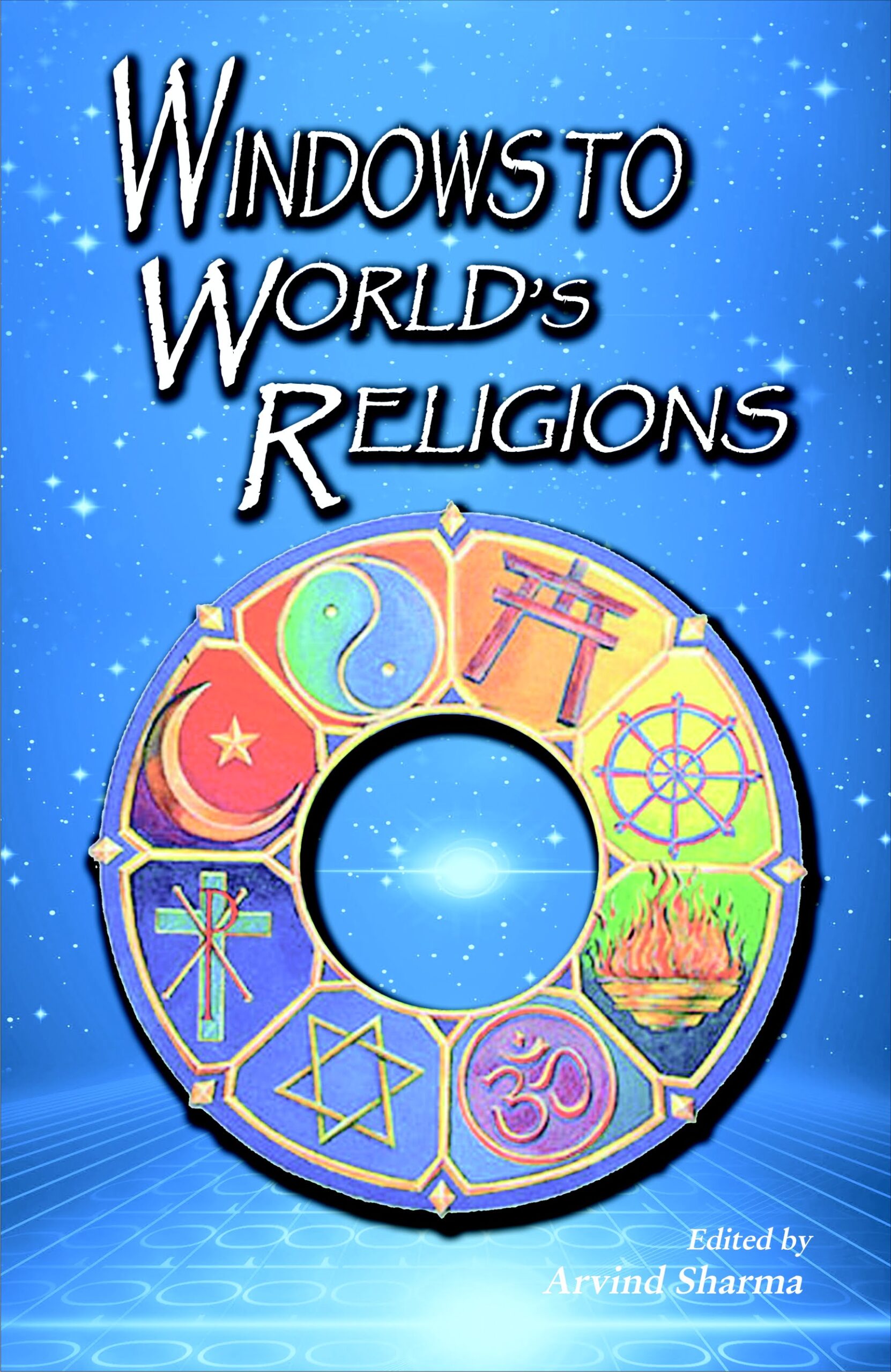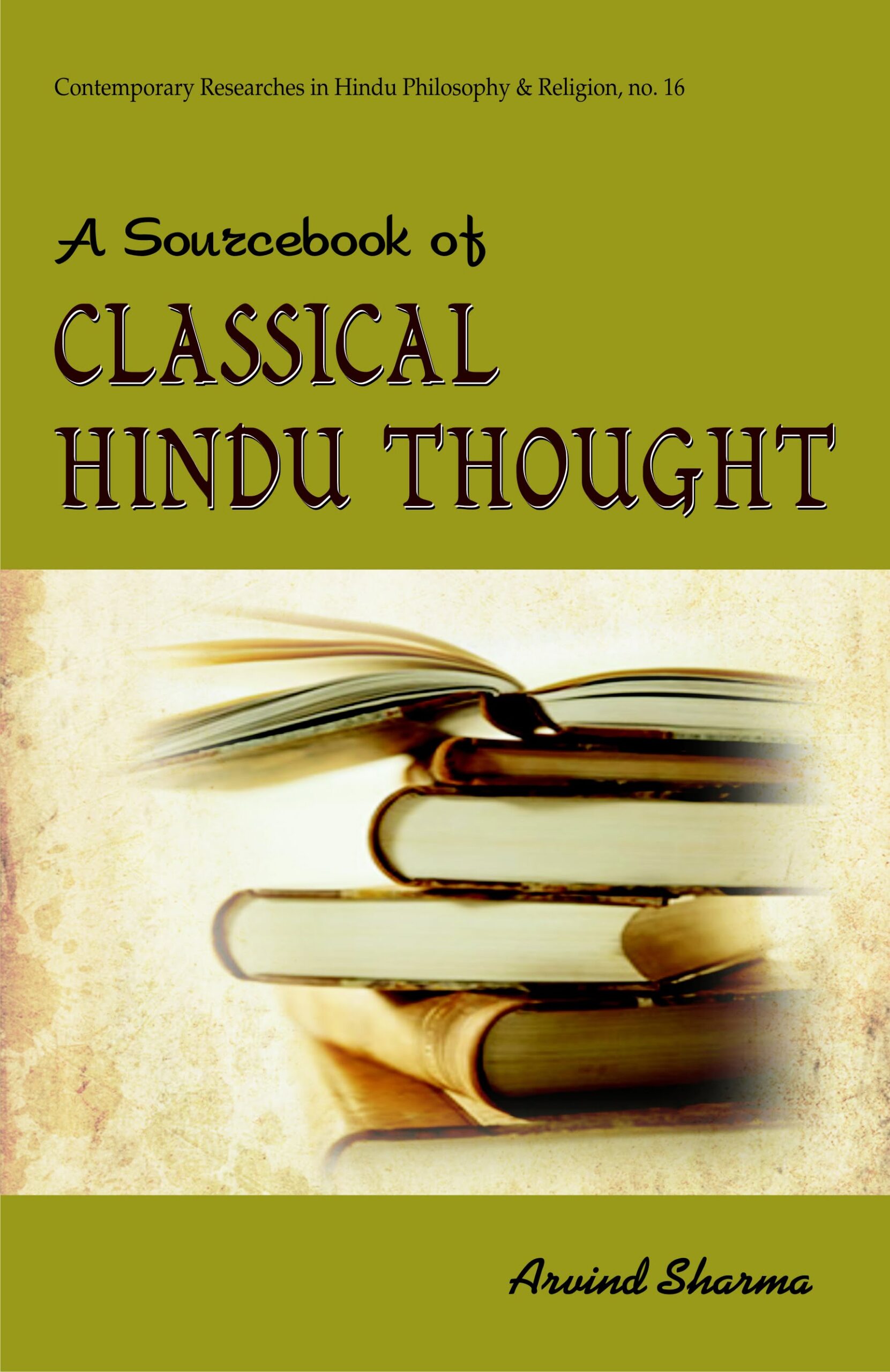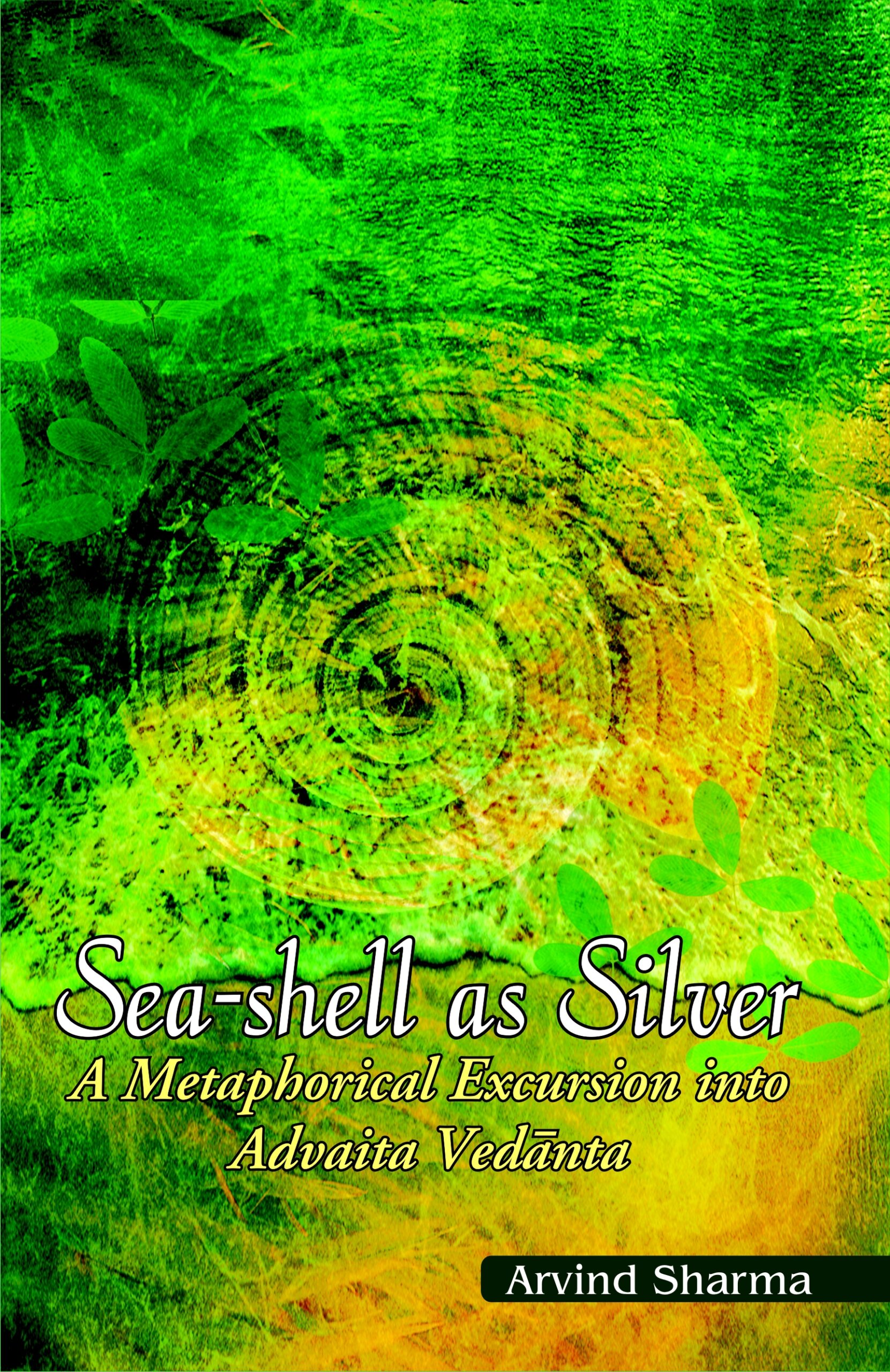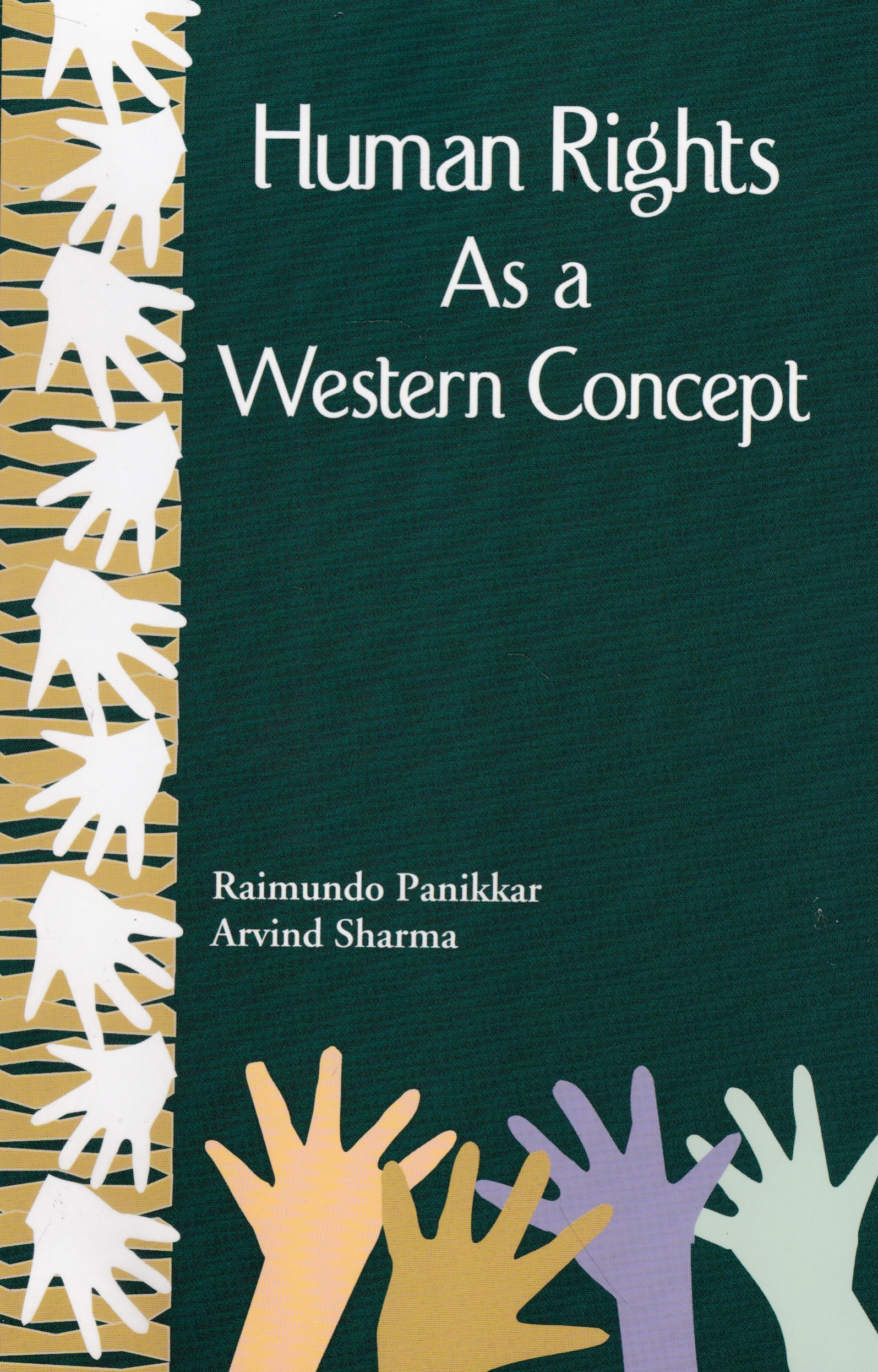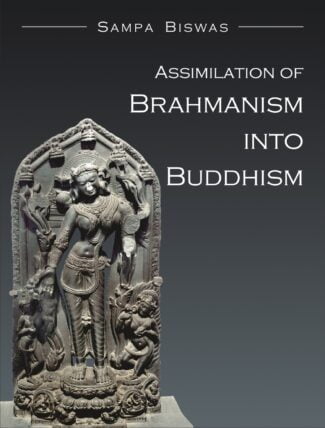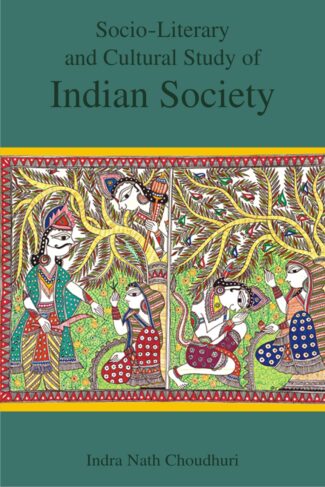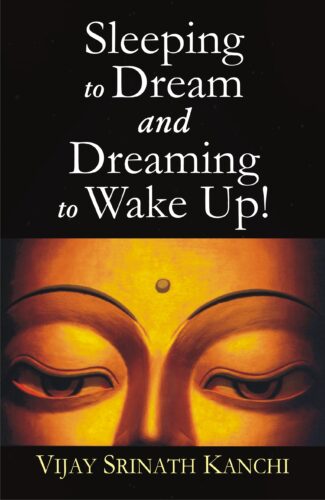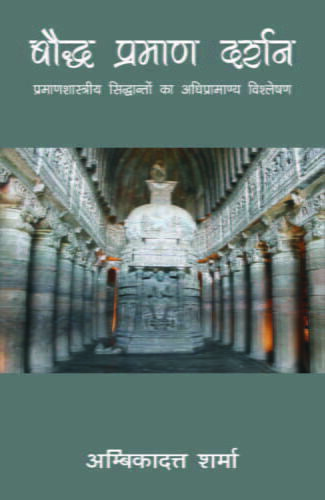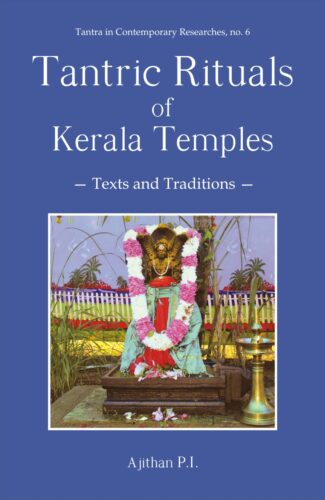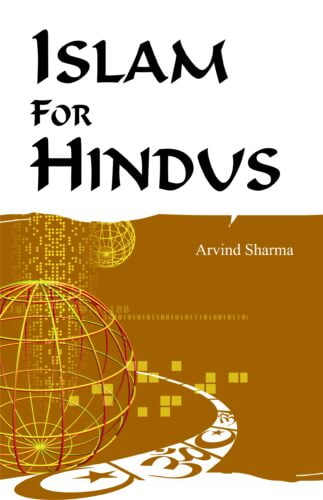
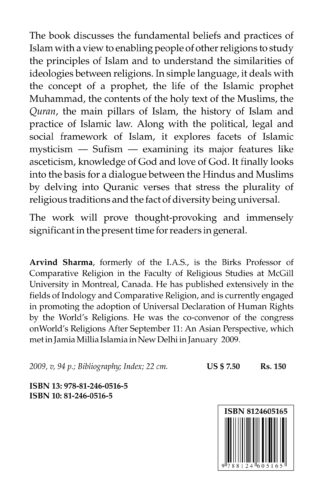
Islam for Hindus...
Islam for Hindus
by: Arvind SharmaThe book discusses the fundamental beliefs and practices of Islam with a view to enabling people of other religions to study the principles of Islam and to understand the similarities and differences between religions.
₹150.00 Original price was: ₹150.00.₹135.00Current price is: ₹135.00.
ISBN: 9788124605165
Year Of Publication: 2009
Edition: 1st
Pages : v, 94
Bibliographic Details : Bibliography; Index
Language : English
Binding : Paperback
Publisher: D.K. Printworld Pvt. Ltd.
Size: 22
Weight: 200
The book discusses the fundamental beliefs and practices of Islam with a view to enabling people of other religions to study the principles of Islam and to understand the similarities and differences between religions. In simple language, it deals with the concept of a prophet, the life of Prophet Muhammad, the contents of the holy text of the Muslims, the Qur’an, the Pillars of Islam, the history of Islam and practice of Islamic law. Along with the political, legal and social framework of Islam, it explores facets of Islamic mysticism Sufism by examining its major features like asceticism, love of God and knowledge of God. It finally looks into the basis for a dialogue between the Hindus and Muslims by delving into Quran’ic verses that stress plurality and the universality of diversity. The work will prove ample material for thought for the reader in general.
Introduction
1. The Concept of a Prophet
2. The Life of Prophet Muhammad
3. The Quran
4. The Pillars of Islam
5. Islamic Law
6. The History of Islam
7. Islamic Mysticism
8. Can Muslims Talk to Hindus?
Bibliography
Index
- Sale!Assimilation of Brahmanism into Buddhism by: Sampa Biswas
₹2,100.00Original price was: ₹2,100.00.₹1,890.00Current price is: ₹1,890.00.Assimilation of Brahmanism into Buddhism is a research work on Buddhism and Buddhist art of early medieval period in India. Archaeological materials and literary records suggest that Buddhism had a continuous existence during the third century bce to the thirteenth century ce in India. Though early Buddhism was totally different in its doctrines and faith from the Brahmanical system, the Buddhism of today is a religio-philosophical system having assimilated and adopted new ideas and beliefs from the environment in which it was born and nurtured.
The introduction of Tantrism bought Buddhism and Brahmanism closer to each other. It opened the gate to the vast field of Buddhist iconography along with Tantric practices, deities, mudras and mandalas. Many of these were influenced by the Brahmanic idea of godhead and some were the combination of one or more ideas of Brahmanic divinities. There was assimilation of a number of factors between Brahmanism and Buddhism.
This scholarly volume addresses the different aspects of this assimilation process by getting into a historical study of Hinayana and Mahayana Buddhism; outlining the political history, and socio-economic and religious changes during 300700 ce; scanning the political and economic background and the spreading of esoteric Buddhism; emergence of Vajrayana Buddhism; and providing a detailed sketch of Vajrayana images. - Sale!Socio-Literary and Cultural Study of Indian Society by: Indra Nath Choudhuri
₹1,500.00Original price was: ₹1,500.00.₹1,350.00Current price is: ₹1,350.00.The Socio-Literary and Cultural Study of Indian Society from Ancient to Modern is a search for India’s heritage: Hindu, Sufi and about Nationalism and India’s freedom from her colonial past. It is analytical but not learnedness. The author believes as Iqbal, the famous Urdu poet, said: “Transcend your reason because though it is a glow, it is not your destination; it can only be the path to the destination show.” People, both Indian and foreign, who want to understand Indian heritage from Ancient to Modern in a simple, agreeable style and friendly manner, is the author’s destination. In this volume, he has tried to demolish many myths like dharma is religion, Vedas are Śruti though the Almighty ordered six ṛṣis to write them down. A Hindu is just not emotional in mind, he also believes in analytic discussion (tarka). Upaniṣads are not just created by ṛṣis but also by a revolution unfolded by the students by barraging questions after questions.By explaining about the vitality of India and many other subjects, the book elucidates many things about the idea of India in an authentic manner. The readers will find here many varieties of theological explication, ultimately leading to the celebration of life while searching for the divine and realizing the self.
- Sale!Sleeping to Dream and Dreaming to Wake Up by: Vijay Srinath Kanchi
₹1,600.00Original price was: ₹1,600.00.₹1,440.00Current price is: ₹1,440.00.“Dreams play a significant role in our life, meaningfully affecting us in the development of our personality and our spiritual journey. They are an everyday experience for any human being. Dreams have always been of great interest to poets and philosophers alike since ancient times and examples are aplenty in Indian and Western scriptures. However, it is an uphill task for an ordinary person to fully appreciate the intricacies and significance of dreams in the day-to-day life. It is here that this book proves as an invaluable guide providing deep understanding on the nature of dream and sleep.
This book is a repertoire of human wisdom – gathered for centuries and attested by the modern science – offering enormous insights into our dream and deep-sleep states. It asks, from a common man’s point of view, many a question that perturb us and provides answers to them from the scientific and spiritual perspectives in a captivating way. Some such questions include:
• Do we see dreams in black and white or in colour?
• What does a visually-challenged person see in his dreams?
• Why are some of our dreams extraordinarily vivid with electric colours, the clarity and brilliance of which, we may never encounter in our ordinary waking lives?
• Why are we non-reflective, irrational in our dreams?
• Are the dream time and waking time equal?
• How does our memory work in dream state? Why do we forget our dreams and is it possible to improve dream recall and cultivate awareness in dreams?
• Why do we fail to distinguish a dream object from the physical world object while we are dreaming?
• If the dream experience exactly feels like the real world and we fail to distinguish it from the waking world while we are dreaming, how can we be certain that we are not dreaming now?
• How does a dream contain various persons exhibiting opposite emotions at the same time when all the dream characters including the witnessing dreamer are produced out of single mind of the dreaming person?
• Can we intentionally transform the dream scenarios? If so, what would be the philosophical implications of it?
• Can dreams and sleeps be utilized for spiritual elevation?
… and many more questions we always wondered about the daily eight hours of our bed time, but never got the right answers to! We find new meanings and ways in dealing with our dreams in this volume, therefore, it is a must read for every dream enthusiast as well as any serious spiritual seeker.
“ - Sale!Baudha Pramana Darshan by: Ambika Datta Sharma
₹800.00Original price was: ₹800.00.₹720.00Current price is: ₹720.00.In Indian tradition of knowledge, the historical advancement of epistemological intellection/thinking flourished through five alternative points of departure, where the first belongs to Maharshi Gautama, who showing priority of epistemology over metaphysics, proposes a constructive model of epistemology. In opposition to this universally acceptable postulation of Maharshi Gautama, three refutative points of departure of epistemological critique of Nagarjuna, Sri Harsha and Jayarasi Bhatta progressed. These three attain their cognitive termination either in the severance of the priority and the position of episteme or in the deconstruction of epistemology. The fifth point of departure evolves from Tarka Pungava Dinnaga, which, parallel to Gautamas exposition and as an option of substitution to Nagarjunas epistemic displacement, presents a reconstructive model of metaphysical epistemology.
In this treatise, an effort has been made to understand the foundational structure of the aforementioned Bauddha Prasthan through certain basic principles, which happen to be the deciding factors/determinative agents in respect of dissensions relating to the matter and corollary, features, and a number of episteme and alternative approaches. From the espoused system of analysis and explication for the purpose, the meta-epistemic dimension of epistemological intellection/thinking of Indian philosophy gets revealed. In fact, it is in this dimension, the optional feature of epistemological doctrines can be recognized to know further that why any epistemological assessment/appraisal is like this?, why isnt it different? In this way, making the basic doctrines of Buddhist epistemology the fundamental point of reference, this treatise attempts have been made to demonstrate that how Indian epistemological intellection/thinking keeps metaphysics in itself as a bequest, and in its expanding/enlarging form it persistently expresses the metaphysical divisions. - Sale!Tantric Rituals of Kerala Temples by: Ajithan P.I.
₹1,600.00Original price was: ₹1,600.00.₹1,440.00Current price is: ₹1,440.00.Kerala Tantra is a regional phenomenon, which is an offshoot or synthesis of Saiddhantika and Pancaratra tantric ritual rites. It is a tradition deeply rooted within the Vedic ritualistic fold and characterized by Smarta-Pauranika beliefs and customs.
This volume is a general, but a serious and in-depth study of distinct temple ritual cult of Kerala. Kerala Tantra still remains to be a less explored subject. There is no exclusive study on the ritual peculiarities of Kerala Tantra. This book focuses on filling that gap covering extensively the prominent characteristics of the unique ritual cult of Kerala.
The data presented in the book are based on many unpublished and less-known, but authentic manuscripts of late medieval period, and interviews with previous and current generations of tantrins and their testimonies. It covers the great traditions of Tantra, Kerala Tantra, and transmission of tantric knowledge through formal and informal methods. It also talks about the institutionalization of Tantric education, taking a cue from the context of Vedic and Sanskrit education of Kerala.


